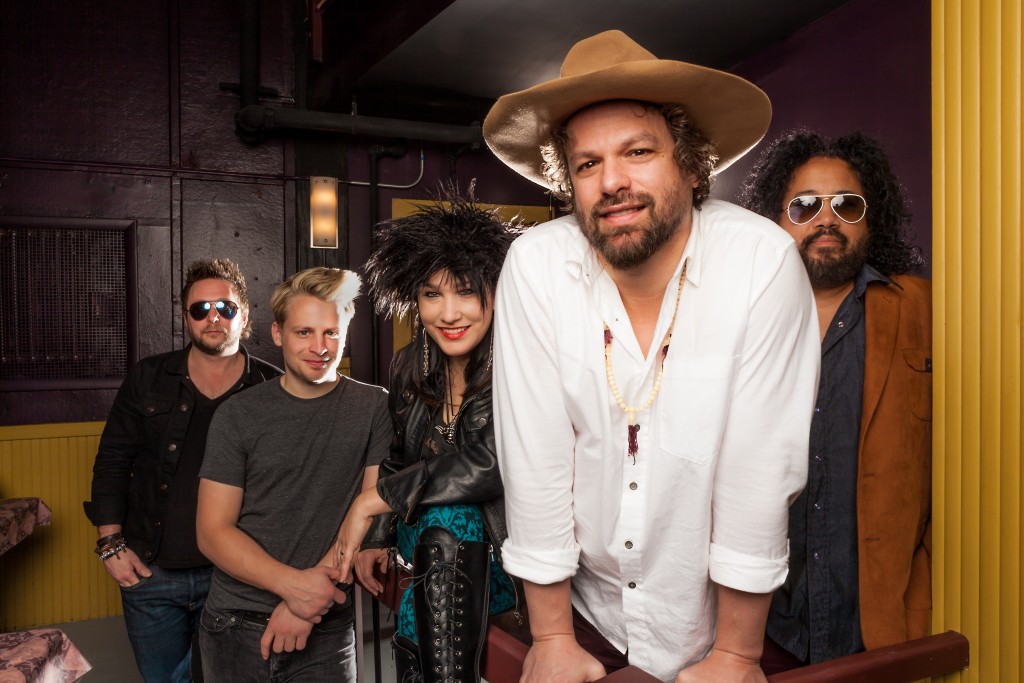Culture
The Rusted Root Experience: A Chat With Michael Glabicki
By: Emily Votaw
Posted on:
In 1994 Pittsburgh, PA-based Rusted Root had an enormous hit with the playful “Send Me On My Way,” a song that managed to tie together diverse instrumentation with a traditional pop aesthetic that sent the album starring the single, When I Woke, to platinum record sale status.
It’s been 22 years since that particular song was released, but that doesn’t mean that the band has quit giving fans what frontman Michael Glabicki calls “the Rusted Root experience.” A few weeks before the band’s headlining performance at the Ohio Paw Paw Festival on Sept. 17, Glabicki spoke to WOUB’s Emily Votaw about the resurgence of “real soul music” and what it’s like to truly be a part of the crowd at a Rusted Root concert.

WOUB: Sounds like you guys have been touring pretty relentlessly lately, does that sound about right?
Michael Glabicki: Yeah, we’ve been out touring our last record, The Movement. I’ve noticed a bit of a resurgence in what I guess you could call “real music,” “real soul music,” as opposed to more computer-programmed type stuff. So I really feel like right now the fans and people who are new to our music are craving the ‘Rusted Root experience,’ which is really awesome. That’s why I think that we’re doing well right now. It’s an important time to be out there playing live music.
WOUB: Could you describe the ‘Rusted Root experience?’
MG: Well, everybody’s perspective on playing music is a little different, but I think that our take is a little more holistic. It’s very important to us to connect with the audience and create a unique experience with them for that particular show. A lot of bands will come out to play and they’ve thought a lot about how they want to project themselves at an audience or what they want to say or how they want to look or be perceived. When we come out, we have these very open ended songs and we bring our own energy to the performance and we try to really soak in the audience’s energy. We’ll be playing and I kind of get lost in the audience’s energy and the band’s energy and my own energy and then something will happen musically or a groove will happen that we’ve never done before or maybe I’ll chop up the song in a particular way and take it in a different direction. I’ll start laughing because it’s such a surprise. That happens four or five times a night, and I smile and look around at the band members like ‘I can’t believe we’re doing this right now!’
WOUB: Could you give me an example of that happening during a show?
MG: Well, we played a show in Annapolis, MA last night and at times the show fell apart into this very acoustic, intimate experience, sometimes I felt like I was sitting on my bed with the audience in my bedroom, strumming my guitar. When you perform a song live it often takes on a very different meaning, and sometimes that is very powerful. Songs change when you play them live. Like sometimes when we play one of our songs that has a more Latin or Middle Eastern feel to it, it will develop this sort of groove that turns it into some sort of disco or funk.
WOUB: Have you always found that your songs change in a live setting in such a dramatic way?
MG: It’s always kind of happened, but back in the beginning we had a more fixed idea of where our music could go. Maybe five years ago we really embraced a new sort of freedom with our music. Part of it is us just getting more relaxed and part of it is understanding where we really need our music to go. It’s been sort of a natural evolution of our music to become more free and be able to change with the energy of the audience. We’ve figured out how to flow completely with whatever the energy around us is dictating. Back when we were just starting I had all these ideas about how the band should do this and that, but as time went on, we sort of took our music apart and let so many of our songs find new meanings.
WOUB: Are you guys working on anything new in the studio right now?
MG: We are working on something new in the studio and we’ve been playing two to three new songs during our live shows to see how the audience reacts to them. That’s a really good way to gauge how we’re doing on a particular song. We’ll get messages from the audience about which direction we should take a new song. Sometimes it’s as simple as watching the person dancing in the front row and realizing ‘wow, I didn’t realize that song could go that way.
WOUB: Have you been to Appalachia before?
MG: I have played there solo, many years ago. It’s a really nice little spot and I’m looking forward to coming back.

